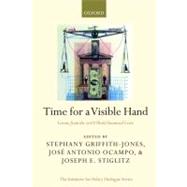
Note: Supplemental materials are not guaranteed with Rental or Used book purchases.
Purchase Benefits
What is included with this book?
| Introduction | |
| The Crisis in the United States | |
| The Financial Crisis of 2007-2008 and its Macroeconomic Consequences | |
| Subprime Finance: Yes, We are Still in Kansas | |
| Background Considerations to a Re-regulation of the U.S. Financial System: Third time a Charm? Or Strike Three? | |
| Responding to the Crisis | |
| Reforming Financial Regulation | |
| Central Banks, Liquidity and the Banking Crisis | |
| Agenda and Criteria for Financial Regulatory Reform | |
| The Role of Policy and Banking Supervision in the Light of the Credit Crisis | |
| How, If at All, should Credit Rating Agencies (CRAs) be Regulated? | |
| Credit Default Swaps (CDSs): The Keys to Financial Reform | |
| Governing the Regulatory System | |
| Developing Country Perspectives | |
| The Management of Capital Flows and Financial Vulnerability in Asia | |
| Regulation of Financial Sector in Developing Countries: Lessons from the 2008 Financial Crisis | |
| Economic Development and the International Financial System | |
| The Accumulation of International Reserves as a Defense Strategy | |
| Reforming the Global Monetary System | |
| Reforming the Global Reserve System | |
| A Modest Proposal for International Monetary Reform | |
| Table of Contents provided by Publisher. All Rights Reserved. |
The New copy of this book will include any supplemental materials advertised. Please check the title of the book to determine if it should include any access cards, study guides, lab manuals, CDs, etc.
The Used, Rental and eBook copies of this book are not guaranteed to include any supplemental materials. Typically, only the book itself is included. This is true even if the title states it includes any access cards, study guides, lab manuals, CDs, etc.